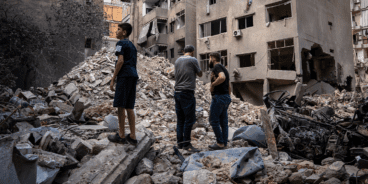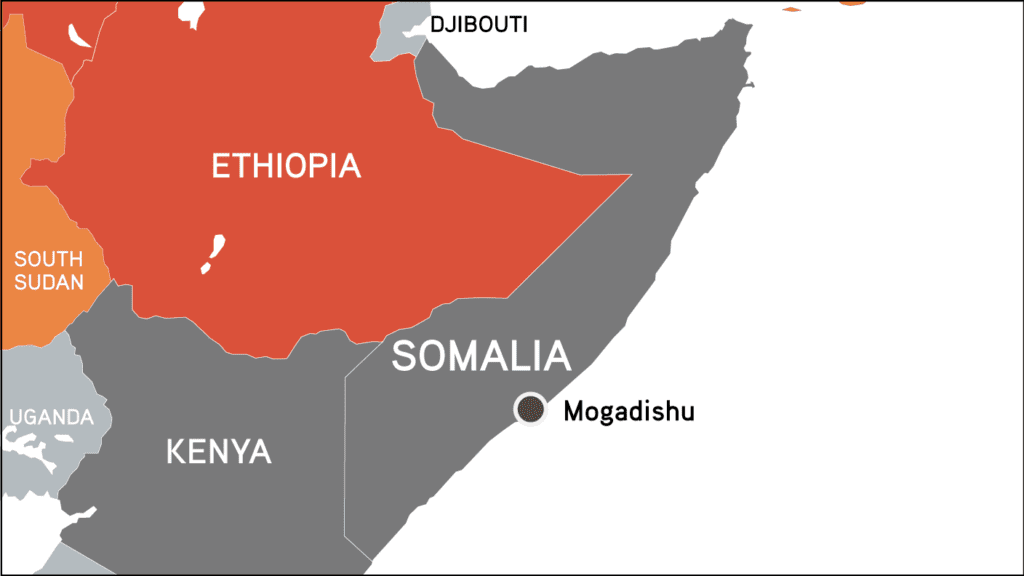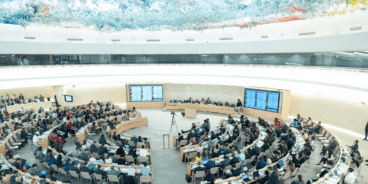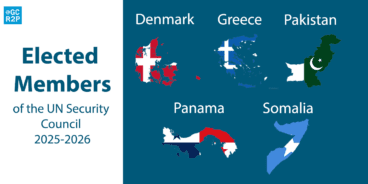
Somalia

Al-Shabaab and various armed forces have perpetrated attacks against populations in Somalia which may amount to war crimes and crimes against humanity.
BACKGROUND:
Despite the 2012 formation of the Federal Government of Somalia, populations remain at risk amidst ongoing conflict and attacks perpetrated by armed extremist groups, particularly Al-Shabaab, and the forces combatting them. According to the UN Secretary-General’s report from February 2022, the UN recorded an average of 265 security incidents in Somalia per month in 2021, with the majority perpetrated by Al-Shabaab. After decades of armed conflict and climate-related disasters, an estimated 2.9 million Somalis are internally displaced while over 7.7 million Somalis – half of the population – require humanitarian assistance.
During the first three months of 2022 Al-Shabaab perpetrated a series of escalating attacks as Somalia carried out elements of its long-delayed elections. Many of the attacks have targeted electoral delegates, politicians, police and checkpoints. On 23 March Al-Shabaab bombers killed 48 people in an attack targeting a female parliamentarian in Beledweyne. Hours earlier the group breached the airport in Mogadishu, where elections are due to take place.
Al-Shabaab fighters routinely violate International Humanitarian Law (IHL) and International Human Rights Law (IHRL), including by torturing detainees, attacking hospitals and schools, targeting civilians, recruiting child soldiers, rape and sexual violence and using civilians as human shields. An estimated 900,000 people live in areas under Al-Shabaab control. Al-Shabaab has blocked civilians from access to vital humanitarian assistance and often targeted the African Union Mission in Somalia (AMISOM) and humanitarian convoys.
Civilians have been harmed during offensives by AMISOM and the Somali National Army (SNA) against Al-Shabaab. Some SNA and AMISOM forces tasked with providing civilian protection have at times posed a direct threat to civilians, committing rape, arbitrary detention and other grave violations of human rights. Airstrikes carried out by the United States (US) in support of the Somali government have also resulted in civilian casualties.
In addition to the threat posed by Al-Shabaab, instability caused by tensions between the Federal Government of Somalia and federal member states, as well as recurring territorial disputes between communities in the border regions, including Galmudug, Puntland and Somaliland, also pose a risk to vulnerable civilians. From January to April 2021 at least 250,000 Somalis were displaced, two-thirds by conflict alone.
ANALYSIS:
Despite political advances, the Federal Government of Somalia currently lacks the capacity to adequately protect civilians from the predations of various armed groups, and AMISOM remains the main source of safety and security in Somalia. While the African Union (AU) has trained AMISOM forces to respect IHL and IHRL and advised on methods to reduce civilian harm, large-scale military offensives against Al-Shabaab still pose a threat to vulnerable populations.
Al-Shabaab and other insurgent forces have exploited political infighting and the long-delayed elections to increase attacks on vulnerable populations. Attacks by armed groups against civilians may amount to war crimes and crimes against humanity.
The Federal Government of Somalia and AMISOM have a responsibility to protect civilians from war crimes and crimes against humanity as they battle against Al-Shabaab and other armed extremist groups.
INTERNATIONAL RESPONSE:
On 31 March 2022 the UN Security Council adopted Resolution 2628 transitioning AMISOM to the AU Transitional Mission to Somalia, or ATMIS. Resolution 2628 authorizes ATMIS to assist with the protection of civilians and fight against Al-Shabaab for a period of one year.
On 15 November 2021 the UNSC passed Resolution 2607 renewing the partial arms embargo for Somalia until 15 November 2022.
On 9 February the US announced targeted sanctions on officials seen obstructing Somalia’s transition.
NECESSARY ACTION:
International partners should continue to support efforts aimed at defeating Al-Shabaab and enhancing national governance, as well as protecting and promoting human rights in Somalia. The UNSC should continue to monitor AMISOM’s transition to ensure the it does not endanger Somalia’s fragile security and stability.
The Federal Government of Somalia, AMISOM and allied forces, including the US, must ensure that their military campaigns against Al-Shabaab are carried out in strict adherence with IHL and IHRL. A coordinated political strategy aimed at countering violent extremism should also be implemented in order to prevent recruitment to Al-Shabaab and other armed groups.
All alleged war crimes and crimes against humanity in Somalia must be properly investigated and the perpetrators held accountable, regardless of rank or affiliation.
Related Content


Letter to UN Human Rights Council members on atrocity prevention priorities at the Council’s 57th session
